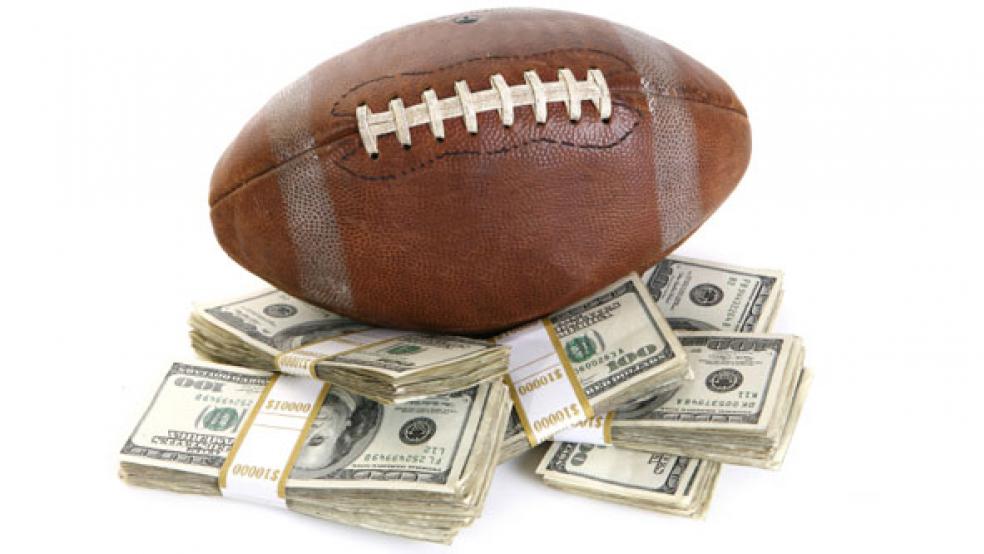All fans eventually figure out that professional sports are as much about business as they are about the games, a realization that can be a real emotional letdown. But one company is trying to take the notion of "the business of sports" to a whole new level, which – as the company and prospective investors quickly learned – could lead to a letdown of a more serious sort.
San Francisco based Fantex, Inc. announced last month that it would start selling stock in professional athletes. It filed with the Securities and Exchange Commission to raise $10.55 million by offering shares, at $10 apiece, in Houston Texans star running back Arian Foster. Foster was to get most of the money raised by the stock offering in exchange for 20 percent of his future earnings.
Those IPO plans have been scuttled now that Foster is set to undergo season-ending back surgery. And the second player in the Fantex pipeline, San Francisco 49ers tight end Vernon Davis, left last Sunday's game with a concussion, leaving that IPO up in the air.
Related: NBC Scores Big with Soccer Gamble
To its credit, Fantex has been upfront about such risks, calling its planned investment offerings "complex, risky and speculative" on its own website. Of course, buying stock is always risky, but when you buy stock in, say, an American corporation, you as a shareholder have certain protections, and in most cases at least a small measure of control over the entity you're buying stock in.
The planned Fantex "tracking stocks," on the other hand, wouldn’t actually represent an ownership stake in the players or any business but are linked to the value of the athletes' economic performance and brands, which would theoretically increase as the player earns more and more from contracts, appearance fees, endorsements and the like. The company said it plans to eventually run its own stock exchange, where stockholders could buy and sell shares of their favorite athletes.
Fantex has stressed that stockholders would be buying interests in player brands, so the potential to make money wouldn't be limited to the time athletes are actively playing the game. In retirement, there would still be an opportunity for player brands to making money, Fantex argues, through avenues such as book sales, television contracts, or, again, endorsements.
And if you want to get really cynical, player brands could theoretically continue making money after the player dies.
Fantex makes it very clear, though, that you the stockholder would have no control over the brand path of the players you own shares in. There would be no shareholder meetings or proxy votes where you can have your say over the direction your player—and hence your investment—might take. And the recent injuries to Foster and Davis have shown just how risky this investment scheme might be.
“On any given Sunday, anything can happen to any player," George Washington University sports management professor Bradley Shear recently told The New York Times. “You are potentially one hit away from losing your money.”
Professional sports and its highly paid heroes letting down its fans is nothing new, but as hard hitting as those letdowns can be at least they've always been purely emotional. If Fantex, Inc.'s scheme of a thriving stock market for professional athletes comes to fruition, those letdowns could easily become financial.
Top Reads from The Fiscal Times


